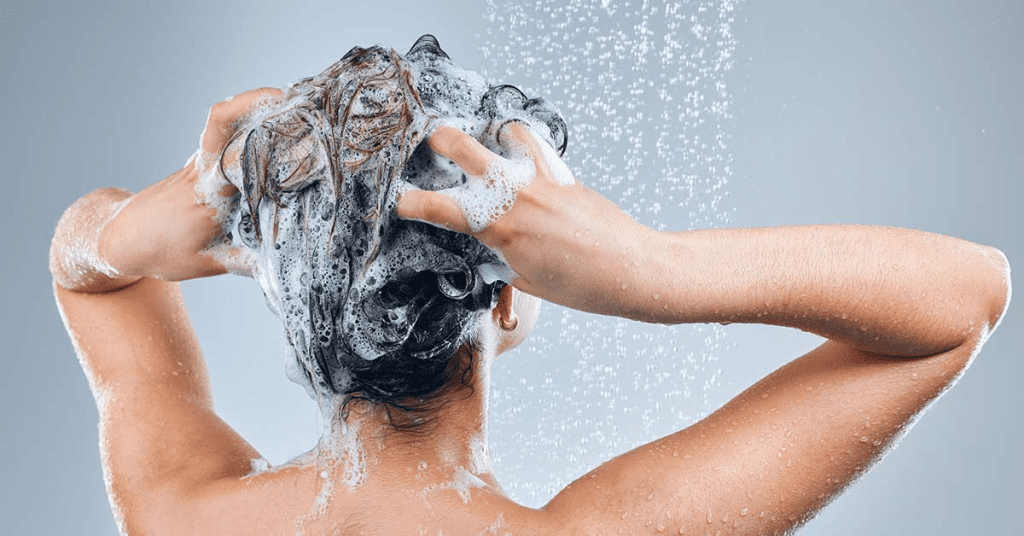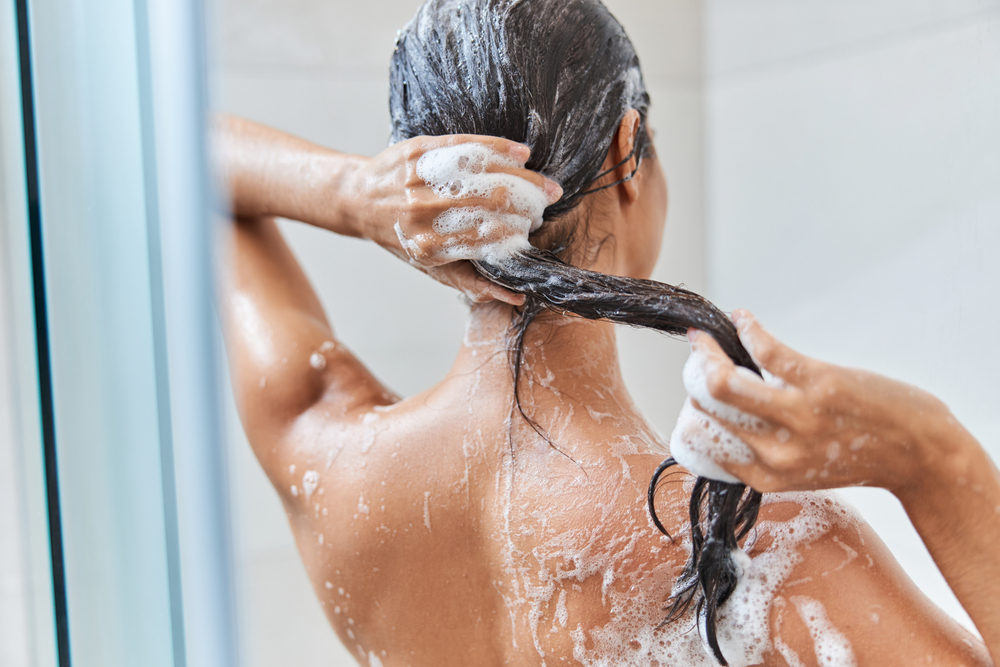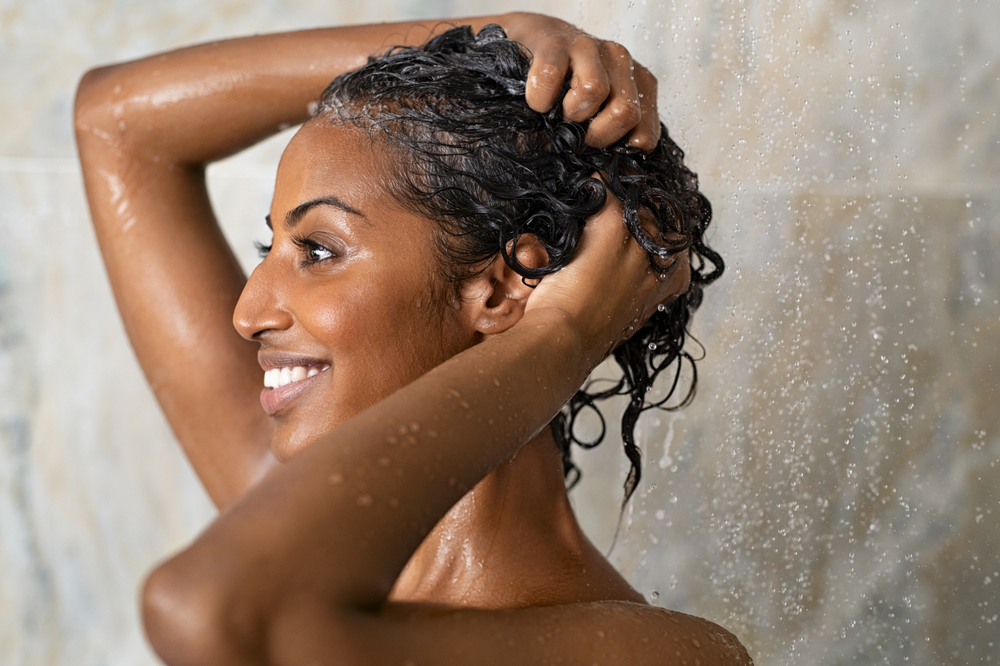Washing your hair might seem like a routine task, but with so many hair care trends and conflicting advice, it’s easy to feel confused. Should you wash your hair every day? Or is it better to go days or even weeks without a wash? With experts weighing in on both sides of the argument, it’s time to get some clarity on the right way to care for your hair—and why not washing it often enough could lead to some serious consequences.

Here’s why washing your hair regularly is essential and what could happen if you skip too many washes.
Washing Your Hair Every Day: Is It Necessary?
Many people feel the need to wash their hair every day, seeking that fresh, clean feeling. However, daily washing might not be the best approach for everyone. According to Dr. Joshua Zeichner, director of cosmetic and clinical research at Mount Sinai Hospital’s department of dermatology, “Washing your hair too often can make the hair dry and brittle, leading to scalp irritation.” Daily washing can strip your hair and scalp of their natural oils, which are essential for maintaining moisture and protecting the skin barrier.
For those with dry or fragile hair, overwashing could cause more harm than good, resulting in breakage, frizz, and overall damage. But what happens if you don’t wash your hair enough?
What Happens When You Don’t Wash Your Hair Often Enough
Skipping washes for an extended period can also have its downsides. Dr. Jenny Liu, a board-certified dermatologist, warns against going too long between washes, especially for those dealing with hair loss or oily scalps. “Never go more than a few days without washing your hair,” she explains. “Sebum, dead skin, and product buildup can lead to an overgrowth of Malassezia yeast, which causes dandruff and inflammation.”
Dr. Liu also debunks the common myth that you can ‘train’ your hair to become less oily by washing it less frequently. In reality, skipping washes can create an unhealthy environment on your scalp, potentially leading to irritation and even hindering hair growth. Maintaining a clean scalp is crucial for healthy hair, as inflammation caused by excess oil or buildup can affect hair follicles.
The Risks of Washing Your Hair Too Often
While washing your hair too infrequently can lead to scalp issues, washing it too much isn’t ideal either. Perry Romanowski, a cosmetic chemist and co-founder of The Beauty Brains website, explains that frequent washing can damage the hair cuticle—the outer protective layer of the hair shaft. “Wet hair swells and becomes more prone to damage. Shampooing frequently and handling wet hair can make it more vulnerable to breakage.”
Additionally, integrative dermatologist Dr. Elizabeth Hughes points out that some people with particularly fragile hair may want to wash their hair only every other week. Hair care needs can vary significantly based on the individual, their hair type, and their lifestyle.

How Often Should You Wash Your Hair?
The frequency with which you should wash your hair ultimately depends on several factors: your hair type, scalp condition, lifestyle, and even your environment. For instance, those with oily scalps or individuals who work out frequently and sweat may need to wash their hair more often to maintain a healthy scalp. On the other hand, people with dry or curly hair may benefit from washing less frequently to preserve natural oils.
Here’s some general advice for different hair types:
- Oily Hair: If your scalp tends to get oily quickly, you may need to wash your hair every day or every other day.
- Dry or Curly Hair: People with drier hair textures can go up to five or seven days between washes to avoid stripping their hair of moisture.
- Textured or Coily Hair: According to the American Academy of Dermatology, those with tight curls or textured hair should wash their hair no more than once a week or every other week.
It’s essential to experiment with different frequencies to find what works best for your specific hair type and scalp needs.

Tips for Maintaining Healthy Hair Between Washes
Whether you’re washing your hair daily or stretching out your washes, there are several tips you can follow to maintain a healthy scalp and beautiful hair:
- Use Coconut Oil for Conditioning: According to Dr. Liu, coconut oil is an excellent option for conditioning and reducing hair damage. Apply it sparingly to the ends of your hair to nourish dry strands.
- Don’t Overuse Anti-Dandruff Shampoo: While anti-dandruff shampoos can be effective, using them daily can dry out the scalp and lead to more frizz. Instead, use these shampoos two or three times a week, and let them sit for a few minutes before rinsing to maximize their benefits.
- Choose the Right Products for Colored Hair: If you have colored hair, wash it less frequently and use sulfate-free, moisturizing products to protect your color and prevent dryness.
- Avoid Products with Dimethicone for Thin Hair: Dimethicone, a common ingredient in hair products, can weigh down fine hair and make it appear greasy. Opt for lighter products that won’t overwhelm thin strands.
- Watch Out for Styling Product Build-Up: Regular use of styling products can cause build-up, which may irritate the scalp and damage hair. If you use these products often, consider washing your hair more frequently to keep your scalp clean.
How to Shampoo for the Best Results

It’s not just how often you wash your hair, but how you wash it that matters. When shampooing, focus on the scalp rather than the ends of your hair. The natural oils from your scalp will help condition the rest of your hair as you rinse out the shampoo. Additionally, you don’t need a lot of product—a small dollop of shampoo, roughly the size of a raspberry, is all you need to get the job done.
Conclusion: Find the Right Balance for Your Hair Type
Washing your hair may seem like a straightforward task, but it’s clear that finding the right balance is key to maintaining healthy hair and a healthy scalp. Whether you’re someone who needs to wash their hair daily or you can get away with less frequent cleanses, paying attention to your scalp’s needs is essential.
Remember, hair care isn’t one-size-fits-all. What works for one person may not work for another, and it’s crucial to adjust your routine to suit your unique hair type and lifestyle. Keep your scalp clean, avoid over-washing, and use the right products to keep your hair looking its best. Ultimately, the goal is to find a routine that keeps your hair and scalp happy and healthy—without overdoing it or neglecting it.
Take care of your hair, and it will take care of you!



